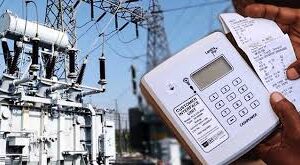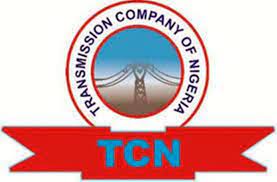Once more, electricity tariff is set to be adjusted with Nigerians yet to come to terms with the poor services being rendered by the power distribution companies. In this report, BENJAMIN UMUTEME looks at the challenge of the so-called minor adjustment.
Six years ago, many Nigerians were optimistic that with the private sector directing the power sector affairs, the nation would not take power supply for granted. When the sector was privatised, it was with the intention of promoting efficiency, boosting supply, reducing average technical, commercial losses and most importantly ensuring that Nigerians get value for money.
Over time, it is now clear to all that the sector is plagued with several challenges including but not limited to illiquidity, non-cost-reflective tariff and the government interventions. And with the Multi Year Tariff Order (MYTO), Distribution Companies (DisCos) are expected to implement a ‘minor tariff adjustment’ yearly while a major hike takes place every five years.
In spite of the minor and major adjustments or hikes, services by the DisCos to customers have yet to reach the expected standard.
Lamentations
When the power sector was being privatised in 2012, it was expected that with private capital, it would be an Eldorado for the country’s power consumers, but alas, it has been almost ten years of hoping against hope.
From Lagos to Sokoto, Maduguri to Enugu, there have been lamentations from consumers. Since January to date, power supply to Nigerians has been epileptic; in fact, there was a time that nine out of 11 power plants collapsed, thus worsening an already bad situation.
Lamenting the worsening power situation, the Manufacturers Association of Nigeria (MAN) stated that manufacturers spent $378 billion on power generation in three years, largely due to unreliable public grid power supply across the country. According to data from the umbrella body of the country’s real sector players, when broken down, N126 billion was spent annually by manufacturers of consumable and non-consumable products.
“The dwindling power supply occasioned by poor generation is having undesirable effects on the nation’s manufacturing industry. Besides the fact that capacity utilisation in the sector has reduced as many manufacturing concerns have either downsized or right-sized in order to cut down the cost of operation, the development has resulted in the low production of goods. In order to boost operation, small, medium and bigger manufacturing companies decided to generate their own electricity using gas, coal and diesel,” it stated.
For Adeola Yusuf, manufacturers are forced to buy diesel, forced to spend money on maintenance.
“In fact in some cases, the burden creates another job of employing an engineer on full time because to use generators is a constant thing, so they need an engineer that will be on generator or electrical beat. So, it has an overall effect,” he said. Looking at the general economy, Yusuf said once this sector is affected, their outputs as well as cost of services are affected.
He said those who could not compete “in this kind of harsh economic environment are forced to quit because some of them cannot meet up with payment of rents and the inability to pay for enough workers as because they cannot bear the additional burden of supplying power for themselves, which ought to be supplied by the government.”
A resident of Jikwoyi, who runs a drinking joint, Queen Okon, said she now spends more to keep her drinks. She noted that despite that she has lost some customers who say her drinks are not cold enough.
“There are no customers because the few that came had to leave because they wanted chilled drinks and my generator cannot carry my two fridges that contain the drinks,” she said.
For Dauda Mohammed, who operates a barbers shop in Phase 3 of Jikwoyi, a suburb of the Federal Capital Territory (FCT), it has not been easy as he has to spend more on generating power to run his business. He told Blueprint Weekend that on the average he spends N3, 000 every month on fuel. According to him, except he does that he would lose many of his customers.
“Boss, there was a time I stubbornly refused to buy fuel for a week, and nobody told me to repent because I knew what I lost those five days,” he said.
A welder in Abaji, also in the FCT, Mr. Ebenezer Dayo, lamented that the lack of stable electricity supply has continued to affect his work. According to him, he has had to resort to buying diesel to do his work, and that has affected his profit margin.
“As you can see, these doors and windows are for a supply to a contractor which at least if there is power supply I will make some savings but I have to go use gas welding to meet up the deadline, “ he said. Dayo also said despite the poor electricity supply, AEDC officials will bring the bill at the end of the month. “Even when they restore the light, it will hardly stay up to two hours and they bring it only at night. Sometimes I rush back to my workshop in the night to work.”
Estimated billing
One thing that continues to be a thorn in the flesh of electricity consumers is the issue of estimated billing by DisCos. In spite of repeated assurances that pre-paid meters will be given to consumers for free, the DisCos still continue to engage in estimated billing which many say is a deliberate attempt by the companies to continue to milk their customers. To put to rest complaints of outrageous billings, the Nigerian Electricity Regulatory Commission (NERC) had repealed estimated billing methodology regulation as the basis for computing the consumption of unmetered consumers. The regulator equally issued a deadline of April 30, 2020 for proper identification and metering of high-energy users.
That seems not to have been heeded as estimated billings of consumers still continue unabated. Many have been left reeling from such bills as some customers are billed as high as N7, 000 for a one bedroom flat. Till date no consumer can really explain the criteria the DisCos use to bill their customers.
For Victor who resides in Phase 2, Jikwoyi, estimated billings are just a ploy by the DisCos to milk customers. He said, “I hardly stay at home because of the nature of my work, so I am always surprised when at the end of the month I see N7, 000 as my bill.
“I think AEDC are deliberately refusing to distribute meters so that they can continue to ‘milk their customers’. And besides, it has been all talk from NERC. Why can’t they enforce their directive, if they are not benefiting from the exploitative system?” For some others, the situation is even worse.
Sodiq Rammon, who lives in Lagos, said from N13, 000 in December 2019, his electricity bill rose to N18,000 in January; N22,000 in March, and N32,000 in April.
He said: “In April 2020, the Ikeja Distribution Company (IKEDC) gave us an estimated bill of N32, 000. That was when there was a lockdown. We cried and wailed, the following month (May) they brought N35, 000 and yet more cries and wailing. This month, the bill for June consumption rose to N48, 000. This is what these Discos are doing to us. Is it not better if they disconnect our light permanently? I thought they said the tariff increase has been put on hold?
“I have never believed in the tariff, because whether there is a tariff increase or not, as long as you are on estimated billing without a prepaid meter, they would bring to you outrageous bills monthly when there’s absolutely no commensurate supply,” he told The Guardian.
Efforts made by this reporter to get the Head Communications, Abuja Electricity Distribution Company, Mr. Oyebode Fadipe, through phone calls, to react to the development proved abortive as his line did not connect.
Also, there was no response to a text message sent to him as at the time of filing in this report.




